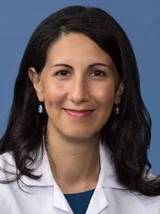Summer 2023 Newsletter

In This Issue:
- Addressing the Most Common Questions that Arise During a Memory Clinic Visit
- Underrepresentation of Black and Hispanic Participants in Alzheimer’s and Parkinson’s Disease Research: Why It Matters
- New Additions to the Easton Center
- Clinical Trials
- Upcoming Events
The Mary S. Easton Center for Alzheimer’s Research and Care at UCLA has very active teams working on basic research, drug discovery, biomarkers for early diagnosis and clinical activity including clinical trials, cognitive testing, and patient care.
Addressing the Most Common Questions that Arise During a Memory Clinic Visit

By: Leila Parand, MD, Assistant Health Science Professor of Neurology, Neurobehavior Specialist
It’s not uncommon to have many questions during an initial evaluation at the Memory Clinic. Here I will try to address the questions that historically have come up and provide answers to recent questions surrounding the new FDA-approved drug Leqembi® (Lecanemab).
What will happen during the visit to the Memory Clinic?
A baseline assessment will be done to determine current cognitive changes. Partners, family members, or caregivers are encouraged to attend appointments to provide their perspectives. Specific questions relating to cognitive functioning will be asked, as well as baseline cognitive testing. Some of the cognitive domains tested include language abilities, memory, attention, and visuospatial functioning, in addition to other cognitive domains. Orders for additional testing may be placed, including more in-depth neuropsychological testing, imaging studies, and labs. Depending on the results of the evaluations in the Memory Clinic, a patient may receive a diagnosis, or further monitoring and testing may be needed.
Referrals for support to other care teams may include genetic counseling, social worker counseling, the sleep clinic, and physical, occupational, and speech therapy. Patients with an established diagnosis and more advanced symptoms may be referred to the Alzheimer's and Dementia Care Program, and patients who have mood symptoms are often referred to geriatric psychiatry. The specialists work together as a team the co-manage the patient’s care.
Additional resources on where to find help in deciding on day programs, caregivers, or living facilities may be discussed at the visit, along with receiving referrals for home health services if needed.



